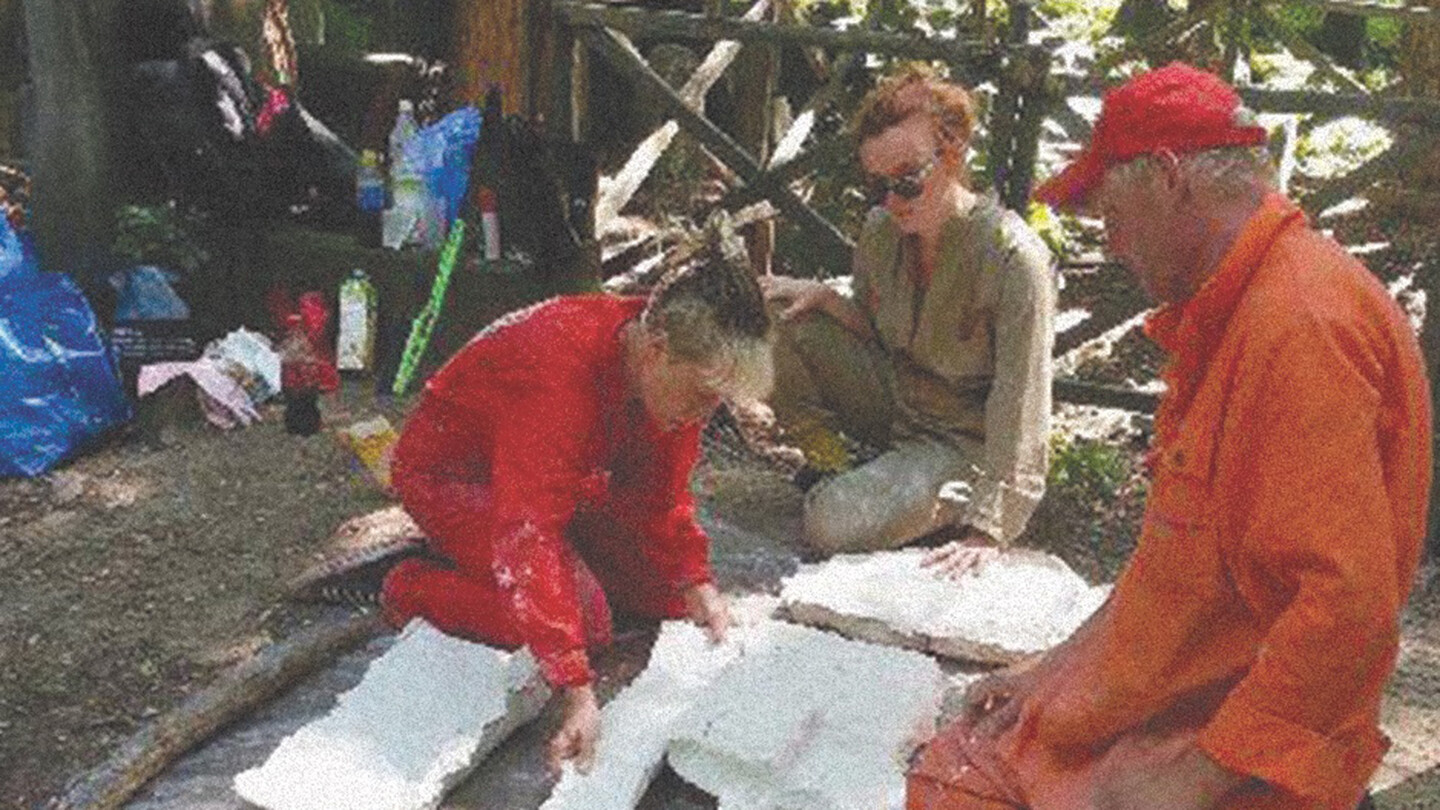June 14–15, 2024
Lorenzstr. 19
76135 Karlsruhe
Germany
Hours: Wednesday–Friday 10am–6pm,
Saturday–Sunday 11am–6pm
T +49 721 81001200
info@zkm.de
A conference on how to unearth and manifest material traces.
Keynote address: Friday, June 14, 7pm, livestream
With Dan Hicks and Natalia Romik, moderated by Alistair Hudson
Conference: Saturday, June 15, 1–7pm
Nabil Ahmed, Eray Çaylı, Bart Elmore, Dan Hicks, Aleksandra Janus, Natalia Judzińska, Svitlana Matviyenko, Klaus Mayer, Efthymia Nikita, Natalia Romik, Kuba Szreder, Agata Szydłowska & Małgorzata Gurowska
Free entry. Please register here: matters-of-evidence [at] zkm.de
Matters of Evidence brings together transdisciplinary perspectives on ways of unearthing and manifesting material traces. Specifically, the conference will focus on the notion of evidence and procedures of substantiating truth used in a variety of disciplines and settings—such as archival, artistic and architectural research, forensics, historical and Holocaust studies, climate science, and the documentation and prosecution of violations of human rights.
Questions of evidence are particularly important in the age of post-truth—evidence has become a highly contested territory. It can easily be mixed up with random facts and instrumentalized to support false claims, conspiracy theories and the outright denial of truth. In contrast to post-facts, evidence should—in theory—stand up to being questioned, challenged, analyzed and undermined. Identifying something as evidence is related to a set of disciplinary procedures employed in order to prove something to be true, and typically this is done with the intention of creating a performative effect—recreating the chain of events, identifying causality and establishing responsibility that may lead to drawing consequences, informing public debate, raising awareness, challenging denial, or impacting public policies. Various disciplines and institutions have their own regimes of identifying evidence and purposes of doing so. Still, they can be allied in their pursuits of illuminating the past, informing the presence and shaping the future.
Matters of Evidence builds on the work of artist and architect Natalia Romik, presently on show with the exhibition Hideouts. The Architecture of Survival at the Jewish Museum Frankfurt from March 1 to September 1, 2024. Matters of Evidence will be convened gradually: It kicks off with the conference at ZKM | Karlsruhe on June 14/15, 2024, inviting a group of artists, architects, scholars, activists, and historians to present their selected pieces of evidence and engage in public discussion. This performative event will inform the development of an exhibition—the pieces of evidence debated during the conference will be contextualized and displayed in a comprehensive installation as part of the open-ended exhibition project Fellow Travellers at ZKM | Karlsruhe from September 20, 2024. Matters of Evidence was conceived by curator and researcher Kuba Szreder (Academy of Fine Arts, Warsaw) and artist and architect Natalia Romik (Warsaw) in collaboration with ZKM | Karlsruhe.
Dan Hicks (Contemporary Archeology, University of Oxford and Pitt Rivers Museum, UK), Efthymia Nikita (Bioarcheology, The Cyprus Institute, Cyprus), Svitlana Matviyenko (Critical Media Analysis, Simon Fraser University, Canada), Klaus Mayer (Nuclear Forensics, European Commission Joint Research Center, Germany), Bart Elmore (Environmental History, Ohio State University, USA), Aleksandra Janus (anthropologist and activist, Zapomniane Foundation, Poland), Natalia Judzińska (Cultural Studies scholar and activist, Institute of Slavic Studies, Polish Academy of Sciences, Warsaw, Poland), Eray Çaylı (Human Geography, University of Hamburg, Germany), Nabil Ahmed (Spatial Practice, Visual Culture & Environmental Humanities, Trondheim Academy of Fine Art, Norway), Agata Szydłowska & Małgorzata Gurowska (artists, curators and activists, ZOEpolis, Poland), Natalia Romik (artist and architect, Warsaw, Poland), Kuba Szreder (curator, Academy of Fine Arts Warsaw, Poland).
Curatorial concept: Kuba Szreder (curator, Academy of Fine Arts Warsaw, Poland)
Artistic framework and design: Natalia Romik (artist & architect, Warsaw)



